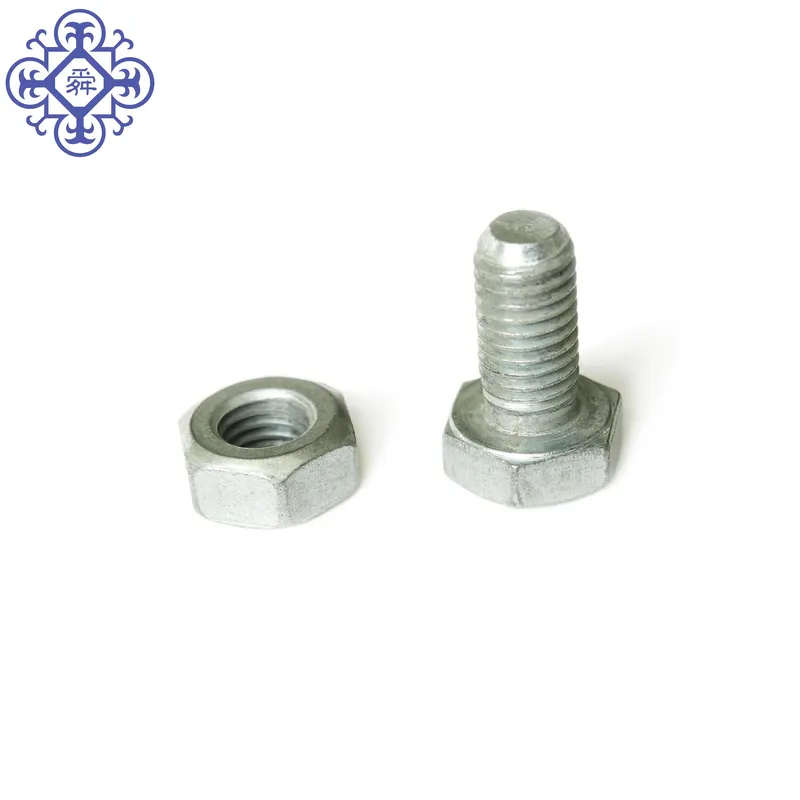An Ode to the Unsung Mechanical Hero
Screws, nails, tacks, staples – all of these fasteners get plenty of attention. But what about the humble hex nut bolt? This ubiquitous fastener quietly goes about its job holding our mechanical world together, seldom grabbing the spotlight. Well, it’s time to change that! Let’s take a moment to appreciate the incredible hex nut bolt.

What is a Hex Nut Bolt?
A hex nut bolt (also known as a hex bolt) is a type of fastener characterized by its hexagonal head and matching hexagonal nut. The bolt shaft is threaded, allowing the nut to be screwed on tightly. This creates tension and securely clamps components together.
Hex nut bolts come in different sizes, strengths, and finishes to accommodate various applications. The hexagonal shape allows for tightening with a wrench, preventing slipping and stripping. Hex bolts can be fully threaded or have an unthreaded shank. Most are made of steel, though other metals like stainless steel or brass are also used.
A Brief History
Nut and bolt fasteners have been around for centuries, but hex head bolts are a relatively recent innovation. In the late 1800s, the hex shape emerged to address slipping and stripping issues with square headed bolts. It provided a better grip for wrenches and enhanced torque ability.
Over the decades, mass production methods and machining technology improved, making hex bolts ubiquitous. Today, they are a standard item found in hardware stores around the world. From towering skyscrapers to tiny gadgets, hex nut bolts hold our modern mechanical world together.
Why Hex Nut Bolts Reign Supreme
So why has this unassuming fastener claimed the throne? Here are some key advantages that make the hex nut bolt a superstar:
- Grip – The hex shape prevents rounding off or slipping of the head when tightening with a wrench. This allows application of greater torque.
- Universal – Hex bolts work with standard sized wrenches and sockets. There’s no need for specialty tools.
- Streamlined Production – The hex shape and threads make bolts easy to manufacture in high volumes.
- Strength – Hex bolts efficiently distribute forces along the threads and shank. The hex head also provides greater load-bearing capacity.
- Versatility – Available in many sizes and styles, hex bolts accommodate diverse applications from automobiles to electronics.
- Reliability – Properly tightened hex bolts rarely loosen on their own. The tension between the mated threads securely clamps parts.
- Economical – Simple and standardized, hex bolts are cost-effective for manufacturers and consumers.
Combine these advantages, and it becomes clear why the hex nut bolt dominates the world of fasteners!
Hex Head Heroes in Action
Hex nut bolts may lack glamor, but they’re certainly not lacking purpose. Here are some examples that showcase their versatility:
Automotive
Cars contain hundreds of hex bolts, securing parts like wheels, engines, chassis components, and more. Various sizes and grades are used, but the basic hex shape remains consistent for easy tightening with standard tools.
Construction
From commercial buildings to backyard decks, hex bolts and nuts are ubiquitous in construction projects. They securely fasten wood, metal, and other structural materials in an economical way.
Electronics
Miniature hex bolts efficiently secure circuit boards, computer components, appliances, and other electronics without taking up excess space.
DIY Projects
For all sorts of home-based making and tinkering, hex bolts are a go-to fastener. Their simplicity, strength, and compatibility with common tools make them ideal for DIYers.
Heavy Industry
Oversize hex bolts and nuts are the unsung heroes of large-scale manufacturing and infrastructure. They provide the brute-force connections that keep factory equipment, vehicles, and utilities safely assembled.
So whether it’s holding together your smartphone or a massive bridge, the humble hex nut bolt rises to the occasion!
Varieties of Hex Nut Bolts
While all hex bolts serve the same basic function, there are some variations to suit different needs:
- Stainless steel – For corrosion resistance in outdoor and chemical environments.
- Carriage bolts – With a smooth rounded head and square neck, these are designed to not spin when tightening a nut.
- J-bolts – J-shaped for anchoring into masonry like concrete or brick.
- U-bolts – U-shaped to wrap around pipes and other cylindrical objects.
- Hex cap screws – Can replace standard hex bolts when a flush or recessed head is desired.
- Socket cap – With a recessed internal socket drive instead of a hex head.
There are also different classes – Grade 2, Grade 5, Grade 8 – indicating the strength. And numerous head styles like hex washer head and flange head for specialized applications. But hexagonal heads and threaded shafts remains the defining motif.
Hex Nut Bolt FAQs
Here are answers to some common questions about hex nut bolts:
How much torque should be applied to a hex bolt?
It depends on the bolt grade, diameter, and application. Refer to engineering spec sheets. As a general rule, tighten snugly with ordinary hand tools, but avoid excessive force.
What are hex bolts made of?
Most are steel, but stainless steel, brass, nylon, and other metals are also used. Grades 2 and 5 are often low-carbon steel; Grade 8 uses alloy steel for maximum strength.
What’s the difference between hex bolts and cap screws?
Hex bolts have a simple hex head, while cap screws have a domed cap for a more finished look. Cap screws also meet more precise manufacturing standards. Otherwise, they are functionally very similar.
Can hex bolts be used with lock washers?
Yes, split-ring lock washers are commonly paired with hex bolts and nuts to prevent loosening from vibration. However, there’s debate about how effective they really are. Proper tightening may be just as good.
How should I remove a rusted hex nut bolt?
Penetrating oil will help loosen the threads. If that doesn’t work, use pliers to hold the hex head in place while twisting the nut. If they’re stubborn and expendable, you may need to make a slit with an angle grinder.
Have more questions? Just ask and this bolt nerd will be happy to answer!
The Glue That Holds It All Together
They may not be glitzy or glamorous, but humble hex nut bolts deserve respect. Their simple design conceals incredible utility that holds the fabric of our constructed world together.
So next time you tighten up a hex nut bolt, take a moment to admire its handiwork. Give it a nod of appreciation. Without millions of these little metal fasteners performing their duty, structures both massive and miniature would simply fall apart. The hex nut bolt is the unsung hero of the mechanical realm, the glue that binds, and for that, we should give thanks.
